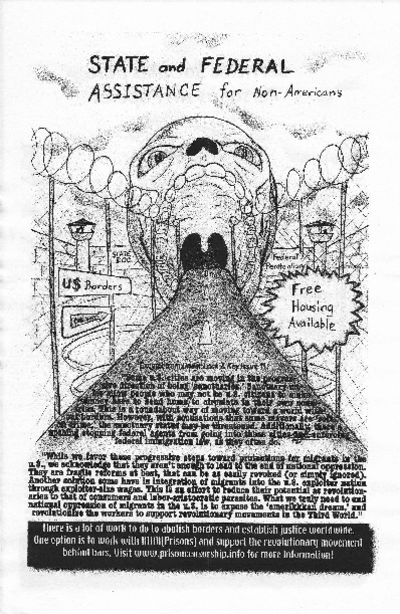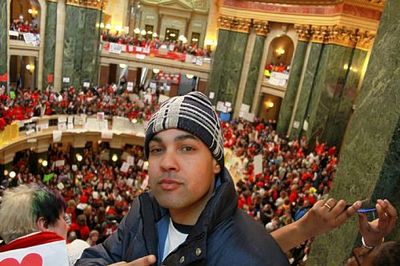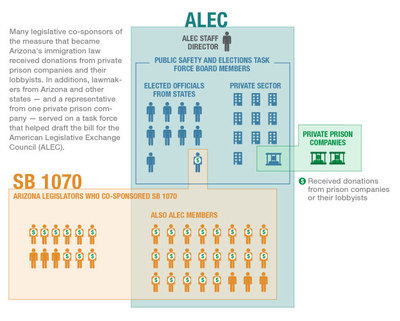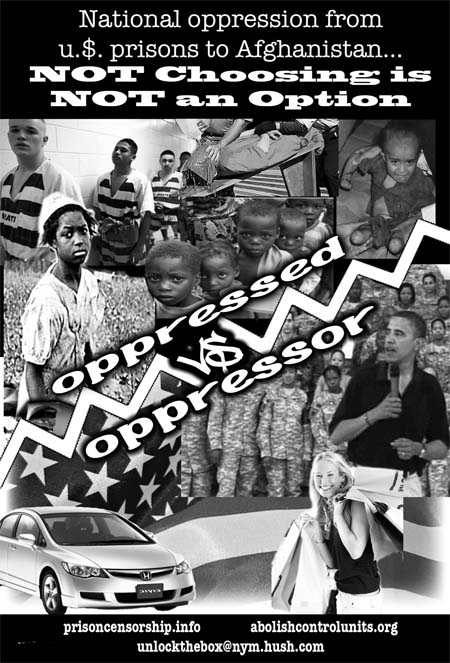
Book Review: A Vietcong Memoir
A Vietcong Memoir: An inside account of the Vietnam war and its aftermath
by Truong Nhu Tang
Vintage Books, 340 pgs.
Truong Nhu Tang (Tang) was the ex-minister of justice for the provisional revolutionary government of the Republic of South Vietnam during their war for liberation. Although Tang came from the petit bourgeoisie before taking up the struggle for national liberation he lends a first hand account of the fight against U.$. imperialism during what has come to be known in the west as the “Vietnam War.”
In 1978 Tang became disillusioned with the outcome of the Vietnam victory on the political fringe (this started when his brother and other family were jailed for re-education). He went into exile in Paris, which he describes as an escape for the most part.
From much of the literature on the struggle for national liberation in Vietnam we get a view from the higher levels of leadership with books from Ho Chi Minh or Vo Nguyen Giap, which are very educational but lack a ground level approach to digging in to the operations and set backs of lower level struggles. Although Tang claims to never have been a “communist” he does say he was a nationalist revolutionary and held Ho Chi Minh in high esteem.
The book focuses on how north Vietnam and the communists, or “ideologues” as he frequently describes communists, took control of the south post war and were heavy handed in re-educating those who needed re-education. For revolutionaries studying different phases of struggle whether political, military, or the diplomatic front, this book will prove insightful as Tang is very descriptive in his memoir.
Most here in Amerika have seen on TV how many U$ soldiers died in Vietnam, or seen clips of the carpet bombing that the Amerikan B52 bombers did, perhaps the rare few have seen grainy documentaries showing some pile of dead Vietnamese or entire villages being touched and babies crying with their flesh literally hanging off from agent orange. Indeed most of us know the Vietnamese fought like hell barefooted with an AK47 in hand, marching through the jungle and basically wearing out U.$. troops through guerrilla warfare. There was an overwhelming amount of organizing at all levels including youth, students, religious groups, elderly, mass organizations, political groups, shopkeepers, even the intelligentsia. This raising of consciousness had begun decades before and Tang as a participant in much of this low level organizing gets into these efforts and shows the strengths and weaknesses in this process.
Tang traveled to Paris as a young man to study how to be a pharmacist. It was here where he started his political life, initially in the anti-war movement in Paris. He began to seriously study political science and colonialism. While in Paris he mobilized the Vietnamese community and sought to build public opinion around the the French occupation in Vietnam. During this time Tang abandoned his studies in pharmacology and his family cut off his financial allowance. His wife was pregnant and with him in France.
At this juncture Tang’s political future was at a crossroad. This happens even here in Amerika where at some point one must make some decision in life about what direction one’s life will go, and like Tang, many times one’s friends, wife, husband, or family will not understand or agree with one’s political beliefs and thus one must make that leap to become a revolutionary or be persuaded to just live one’s life. Although Tang doesn’t analyze or dig into this, as you read the book you see his predicament and see him leap into the thick of it. When faced with this, he and his wife decide it’s best she goes back home to Vietnam to have the child while he goes on surviving any way he can, taking odd jobs while continuing his political agitation. It was here that he met the French Communist Party (FCP) members and intellectuals, and although he didn’t quite agree with the FCP on their stance with Vietnam he began to develop his political ideas.
After receiving a master’s degree in political science, Tang returned to Vietnam where he describes an environment of revolutionary fervor with almost everyone sympathizing with the Viet Minh. He goes on to hook up with a guerilla unit and went on an ambush of French forces. This taste of struggle for liberation sways Tang to get in on the fight for independence.
Tang describes how they began to form the underground resistance that evolved into the National Liberation Front (NLF). This happens in “Saigon,” very much an urban struggle, so it proves to be insightful for anyone interested in organizing in a city in an underground group. Tang discusses his creation of numerous committees, mass organizing and the art of propaganda, and even takes you to the jungles where he had his ministry. He tells of how they would hear the bombs raining down, as the guerrillas scramble for the bunkers. Some succumb to what Tang describes as “internal convulsions” where one urinates or shits oneself involuntarily. Tang was living in a constant state of anxiety or combat fatigue, within this environment of constant harassment from opposition, bombings, and attacks, while still carving out a liberation struggle and tending to affairs within the unit or region, and maintaining his ministry while surviving on a handful of rice twice a day. This sacrifice was really something to read about. Imagine holding a study group on Marx or guerilla warfare while the bombs get you scrambling to a bunker, and all for no financial incentive as would be required by Amerikans, but just to free themselves. This was powerful.
I saw slight similarities (of course on a whole different level) between prisoners within U.$. gulags who may be in a constant state of alert, harassed by guards or even at war with a backwards element of the prison population. And within all the chaos that environment can bring, with storm troopers raiding your cell at 2:00 a.m., or putting you on potty watch, or confiscating all your literature, not allowing literature to enter the prison, going to the hole, maybe getting shot, etc. And within all this madness many prisoners continue their studies and struggle to liberate themselves and their oppressed nation. I think many would also find strength and inspiration in learning how many prisoners also develop under such overwhelming odds within U.$. prisons.
There were times when Tang would be arrested and described how he was tortured with electric shock by the pro-imperialist Vietnamese government. I would have liked to hear more of how the Vietnamese prisoners organized, as it is well known that even under French occupation the Vietnamese prisoners saw prisons as “Schools of Liberation” and had their own culture and living guidelines within prison. They had study groups and developed the masses into revolutionaries. It’s too bad Tang didn’t go into all this but it seems his prison stays were not very long, the longest being ten days. It appears his connections to the Vietnamese bourgeoisie, having a brother who was a high level air force fighter and another who was a high level banker seemed to get him out of prison very fast.
After the war ended and the last helicopter fled the embassy Tang describes the situation as chaotic. But again he was there struggling to rebuild his homeland. It was during this time that many were told to report for re-education and Tang himself says he drove his brothers down to be re-educated. He even led some of the re-education classes and engaged in criticism-self-criticism. However, once his brothers were taken to a re-education camp for the long term his stance on the post-war situation changed. Tang’s two brothers were high level military, one being an officer, and although one of his brothers was released (through his efforts and letters to government leadership) one was kept in camp. It was at this point that Tang withdrew and resigned from politics, eventually moving out to a country farm and later sneaking out into exile in Paris.
It is clear his actions were subjective and he notes that many people were not political but nationalistic in their ideas. He argues that the post war government was too heavy handed. From what I read it did appear the NLF was pushing a more nationalistic line rather than a revolutionary nationalist approach. I think that if the NLF had focused their organizing efforts more on raising the people’s political consciousness rather than focusing on a nationalist line they wouldn’t have had such a hard time post war.
I would have liked to hear more on China and the Soviet Union at that time as Tang was part of a Vietnamese delegation that toured these countries. But he doesn’t weigh in on the Soviet revisionism, rather saying Vietnam stayed neutral on the “Sino-Soviet” dispute as he calls it. He does say Vietnam cozied up first to the Soviets but later alluded to his dislike of Kruschev, especially his anger at being left for two weeks in a Russian hotel when he was supposed to be touring the country.
A reader will find this book insightful for the winding paths that were taken to build a movement full of committees and coalitions, underground parties and guerrilla networks all with the end goal of defeating U.$. imperialism. After reading this book I appreciate more the efforts of MIM(Prisons) and what they do to raise our consciousness.
MIM(Prisons) adds: The Vietnamese struggle was a heroic one that is still at the forefront of the global anti-imperialist legacy. After they defeated the imperialists, the most advanced political thinking of the time did not take hold in Vietnam’s leadership, preventing socialism from developing. But as the reviewer discusses, there is still much to learn from this book about the successful struggle and organizing, especially under such horrible repression by U.$. bullets and bombs. We point readers to a book review of Ho Chi Minh: A Life for a more complete picture of the history of the revolution in Vietnam, and the political line of the post-revolution government.












 Download
PDF, Print and Distribute
Download
PDF, Print and Distribute